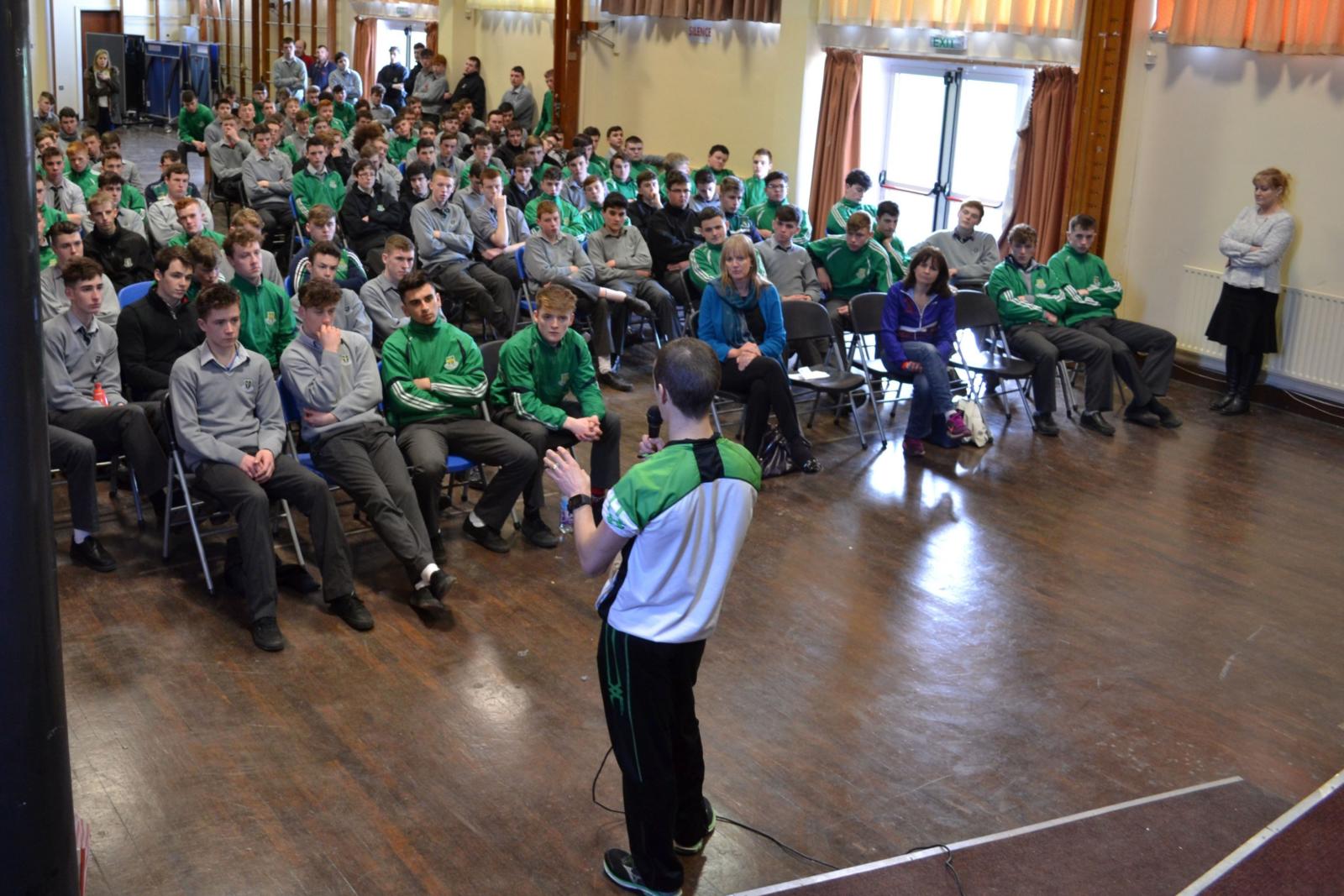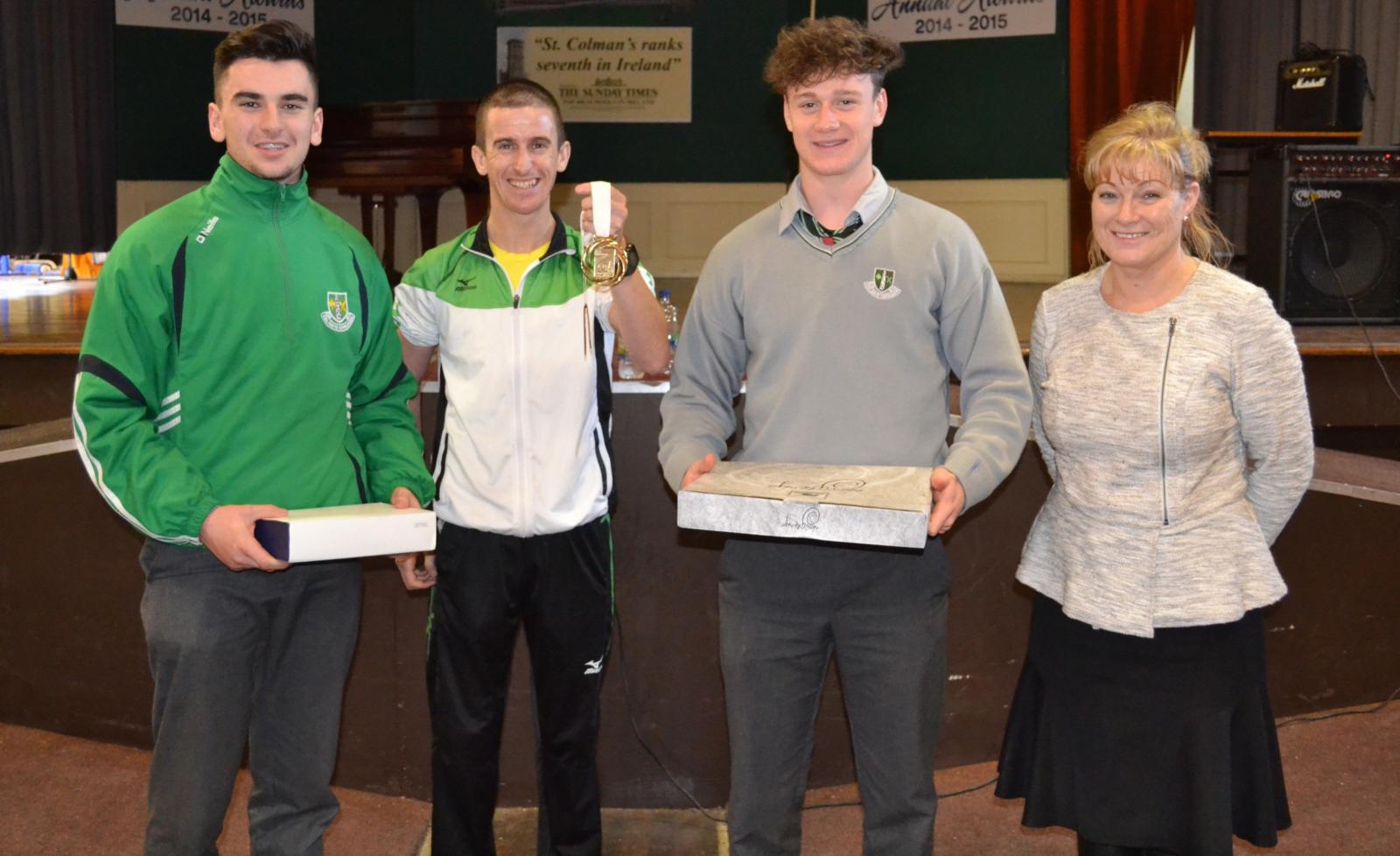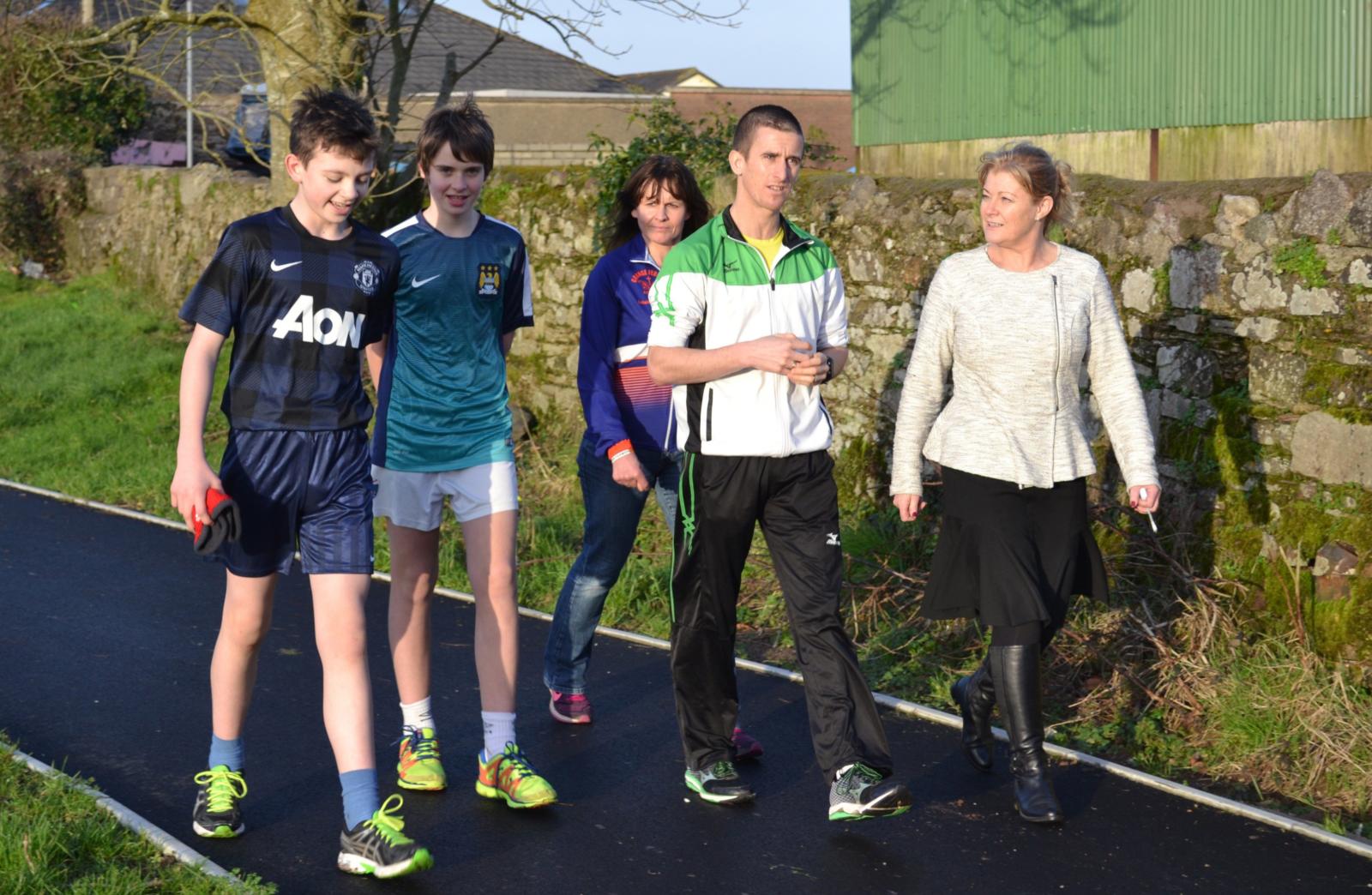World Champion Rob Heffernan was in Fermoy last Friday and gave a talk to students in St Colman’s College, ahead of his trip with Team Ireland to Rio de Janeiro.
Rob is gearing up to compete at his fifth Olympic Games, having made his debut in Sydney in 2000. In London 2012 he finished in 4th place in the 50km walk, but the bronze medallist was subsequently banned for over three years following a doping scandal. It is expected that Rob will be awarded the bronze medal before the Rio Olympics.
The following year, in 2013, Rob won the 50km World Championship in Moscow, and has a bronze medal from the 2010 European Championships in Barcelona.
Welcoming him to St Colman’s College, principal Veronica O’Donoghue said: “We’re particularly delighted to invite someone who would be known in Cork as a Leeside legend. We’re a very sporting school, we’d normally be known for hurling and football,” she said, citing that the college has had a fair bit of success in other sports too.
“We’ve had lots of success and lots of people competing on the world scale. And we’d have a great appreciation of the amount of work that goes into sport and the amount of work that goes into preparing for competitions,” acknowledging that Rob is training at a particularly high level.
Conducting a Q & A session with students, Rob explained his background in athletics, his training schedule ahead of the Rio Olympics and his life as a world-class athlete. His first real introduction to athletics, he said, came while a student in Coláiste Chriost Rí in Cork city.
“I won the mile in first year, and I would have been a good distant athlete. We did triple jump, we’d an indoor pole vault, and we did race walking – and I ended up being put forward for trials for the school team. My first few years I didn’t even get out of Munster, I didn’t even qualify for All-Ireland’s. But that’s how I got into it.”
The Rio Olympics run from August 5th to 21st, and Rob said his training for the Games began last year.
“I started back on a walking programme in November and all the way up to August. Every week, it changes so it gets progressively harder, faster, longer. My first week’s training in November would probably be 75km and go to the gym a couple of times, but that first week was really tough because I wasn’t that fit coming into it.
“My biggest week’s training would be up at the Atlas Mountains in Morocco in either July or I’m going back there in April, and I could be hitting 210 or 220km and I’d be in the gym three times a week. But I’d have to build up to that, all of my year is periodised,” he said.
Outlining his average day while training, Rob said he gets up at 9am for breakfast and is ready for training at 10.30am. His first session, which could be between 12 and 40km, will last until around 1.30pm, when he will have lunch and grab a couple of hours sleep. Training resumes between 5.30pm and 7.30pm, with gym and physio sessions on certain days to be factored in as well.
“If I don’t live my life that way, I can’t compete at the highest level, so that’s what I have to do for my sport,” he told the interested gathering of students.










